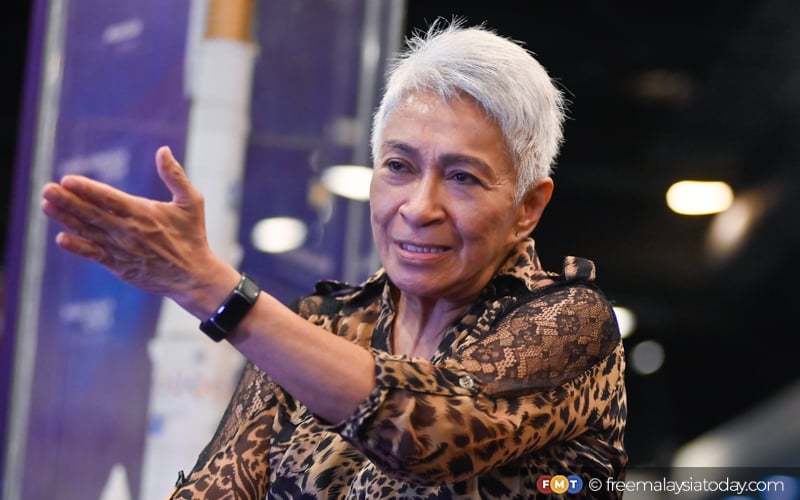
PETALING JAYA: A perception that careers in science, technology, engineering, and mathematics (STEM) are less “rewarding” has deterred young women from pursuing such paths, says pioneering Malaysian astrophysicist Mazlan Othman.
The professor emeritus at Universiti Kebangsaan Malaysia said encouraging curiosity in science at a young age and highlighting the success of local scientists could inspire young girls to pursue STEM fields.
“We should make women and girls aware that science is a rewarding career. It’s extremely rewarding if you look at what you can contribute to the country, the world, and the planet itself,” she said.
Mazlan, who is also a senior fellow at the Academy of Sciences Malaysia, said parents and teachers play a primary role in changing the mindset of the younger generation and pivoting them towards careers in STEM.
“As a parent, you have to be a role model to encourage your children to think about what is around them, beyond what they’re learning in school,” she told FMT.
Mazlan also said science needs to be taught differently in schools. She urged local educators to draw inspiration from Scandinavian countries and make the subject more engaging and enjoyable for students through innovative teaching methods.
Finland, for example, focuses on practical science experiments to provide a hands-on experience for students, while learning in Norway takes place both in classrooms and outdoors.
Mazlan’s journey in pushing boundaries
Mazlan’s own journey into astrophysics began in the classroom, where her teachers encouraged her to pursue the science stream despite her initial passion for literature and the arts.
“I did not question my teachers’ decision that I should go into the science stream because they said to me, and it was very clear, that the country needed more scientists,” she said.
However, it was not until her third year of university that Mazlan discovered the study of the universe, which sparked her fascination with the aesthetics and philosophy inherent in astrophysics.
Since then, she has made significant contributions to Malaysia’s space sector, from pioneering the national microsatellite programme to establishing the National Planetarium during her time as the first director-general of the space science studies division in the Prime Minister’s Department.
Despite facing challenges in obtaining resources for the nation’s space advancement, Mazlan was determined to push the boundaries of space exploration.
“You have to do something substantive. You need to convince them of the benefits that involvement in space brings. We’re talking about involvement in space in relation to national security, sustainable development, and the survival of the human race,” she said.
Mazlan’s remarkable work in space technology saw her foray into the international arena, leading to her appointment as director of the United Nations’ Office for Outer Space Affairs.
“Space is a common heritage of all humankind, which means that no one country can claim to own any part of outer space. That was something I learned very fast,” she said.
Mazlan said she never felt discriminated against throughout her career in the male-dominated field of astrophysics. She said her sheer desire to advance space science and technology propelled her forward, past all societal barriers.
She said the demanding nature of her work posed challenges to her ability to lead a balanced life, but she was willing to make the necessary sacrifices to contribute to her country.
“My duty to the country was always there. Throughout my career, there was no question about what I had to do,” she said.
Although she looked up to physicist Richard Feynman’s multidimensional approach to life, Mazlan said she was not driven by any particular role model, relying instead on her own sense of motivation and self-discipline.
“I just love doing new things. I always felt it wasn’t my place to do something that someone else is already doing, or doing better (than I can). I’ve always been drawn to new fields, so staying motivated was never an issue,” she said.
It was that drive that led to her not only becoming Malaysia’s first astrophysicist, but also achieving new heights for the country’s space industry.
Her many achievements include setting up the National Space Agency, becoming its first director-general and leading the Angkasawan Programme which launched the first Malaysian astronaut to the International Space Station.
“I never thought of leaving behind a legacy. That is up to the future generations to decide. I just worked hard for everything I thought had to be achieved for the country to reach a certain point and declare itself a developed space nation,” she said. - FMT



No comments:
Post a Comment
Note: Only a member of this blog may post a comment.